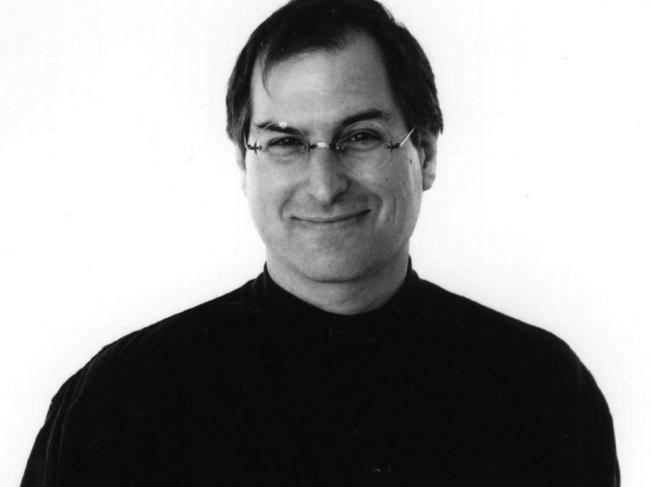Steve Jobs’ legacy, according to Brent Schlender and Rick Tetzeli
A new biography of Apple boss Steve Jobs paints him as a spoiled brat, but also a genius who smashed down tech barriers.

Becoming Steve Jobs: How a reckless upstart became a visionary leader
By Brent Schlender and Rick Tetzeli (Hachette Australia, hardback $49.99; paperback $35)
By any measure, Apple founder Steve Jobs is one of the genii of our time. He was a brilliant, difficult, passionate, obsessive man who smashed technological barriers and transformed our lives. In only a few years, he turned the world into a generation of smartphone-reading zombies, their work and personal lives inextricably tied to the handheld device he launched in 2007.
Any book that seeks to tell the “real story” about the late Jobs, based on a long period of interviews with the man during his lifetime, deserves to be read, if not plundered for lessons about creative genius.
Becoming Steve Jobs has been written by two journalists who covered him extensively. Brent Schlender covered Jobs for 25 years, including 10 years writing for The Wall Street Journal and two decades for Fortune magazine. Rick Tetzeli is executive editor of Fast Company magazine.
The pundits have had a field day contrasting the new book with the first major study of Jobs since his death in 2011, Steve Jobs by journalist Walter Isaacson. While Isaacson’s book was officially authorised by Jobs, Schlender and Tetzeli reject its depiction of him as “half genius-half jerk”, an almost bipolar personality whose character was shaped by his feeling of rejection after finding out he was adopted.
The latest book is bent on showing a kinder, gentler Jobs who was driven and difficult, but a man who grew during his lifetime, whose rough edges were smoothed over by his decade “in the wilderness” after he was pushed out of Apple. The Jobs that returned to the company he founded was a changed man who helped to transform the ailing Apple into one of the world’s most successful companies — releasing first the iPhone and the iPad in the final years of his life as he battled cancer.
The book gets the approval of the Apple hierarchy, led by Jobs’ successor, chief executive Tim Cook. Cook dismisses the Isaacson book as doing Jobs “a tremendous disservice … just a rehash of stuff that had already been written” that painted Jobs as a “greedy, selfish egomaniac.”
In contrast, Schlender and Tetzeli argue that Jobs “could be a jerk, but he wasn’t an arsehole”. Jobs, they say, wasn’t bitter about being adopted. He was a spoiled brat indulged by parents, who were prepared to spend what little funds they had into supporting him.
Becoming Steve Jobs has lots of new gossipy titbits about Jobs, including his obsession with keeping the extent of his cancer a secret and his tendency to hold long-term grudges against critics including singer Neil Young who criticised the sound quality on iTunes.
We also learn that at one stage towards the end of Jobs life, Tim Cook offered to let him take part of his liver for a transplant. Exactly how this would have worked biologically is not explained. Jobs quickly rejected the idea. There is a lot of “I” in the book as the main writer, Schlender, seeks to prove that he was the journalist who knew Jobs better than any other (aka Isaacson).
But the real value in the new book is reading another take on the life of a genius. As they say, real change is only brought about by unreasonable people who can’t abide the status quo and have a deep passion to improve things. We see how the tech-savvy Jobs, from a young age had no qualms about approaching all sorts of people for help or advice or to tap their expertise. He was an obsessive, impatient workaholic who could not abide what he saw as laziness in anyone he worked with.
He never wanted to be a businessman but was driven by a desire to make technology more accessible to ordinary people. His work was his life and “everything about work was personal for Steve.” That said, the young Steve Jobs was so off the normal personality scale that he had to change, and change he did.
This biography is well sourced, fast paced and detailed. None of us will ever be Jobs, but we can learn much by studying the furious life of someone who revolutionised our daily lives.



